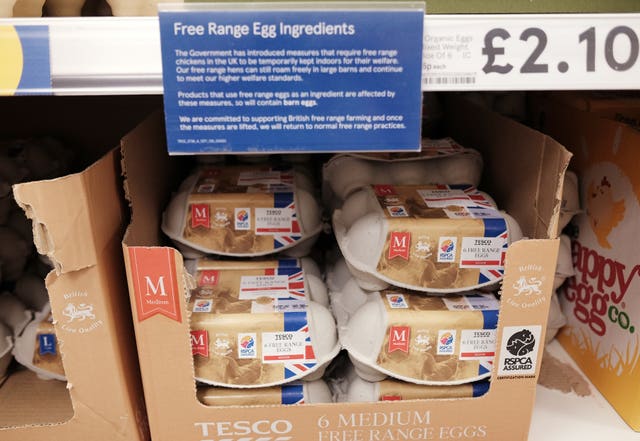Food prices could rise as much as 15% over the summer – report
The Institute of Grocery Distribution (IGD) said essentials including bread and chicken will be affected by inflation over the summer.

Food prices could rise by 15% over the summer and leave more shoppers skipping meals due to “food stress”, according to grocery analysts.
The Institute of Grocery Distribution (IGD) said in a report that households are set to pay more for essentials including dairy, bread and meat as recent inflation looks set to grow further.
IGD have reported that factors including uncontrolled increases in labour costs, trade disruptions caused by Brexit and the weakening of the sterling against other currencies could be behind the rising inflation rate.
Last month, the Office for National Statistics (ONS) recorded that inflation hit a 40-year-high at 9%, as food price rises gathered pace.

The research predicted that all consumers will be impacted by rising inflation and a decline in real wages, which could see a family of four increasing their spend on food and groceries from £396 per month to £439 per month.
The group has warned that some families may have to skip meals as inflation continues to rise.
The report also mentioned that the UK economy is facing its “strongest period” of inflationary pressure since the 1970s, with the conflict in Ukraine worsening the impact by restricting supply chains and pushing up grain prices.
This has been compounded by the fact that Ukraine and Russia are both big global grain producers, collectively accounting for nearly a third of global wheat exports.
Products that use grain such as bread and products containing meat from animals fed on grain, for example chicken, are to increase in price over summer and autumn as a result, said the IGD.
James Walton, the chief economist at IGD, said: “From our research, we are unlikely to see the cost of living pressures easing soon.
“This will undoubtedly leave many households, and the businesses serving them, looking to the future with considerable anxiety.
“We are already seeing households skipping meals, a clear indictor of food stress.
“We expect the mood of shoppers to remain bleak for the foreseeable future as they are impacted by rising inflation and a decline in real wages.
“Shoppers are likely to dial up money-saving tactics as far as possible.”





